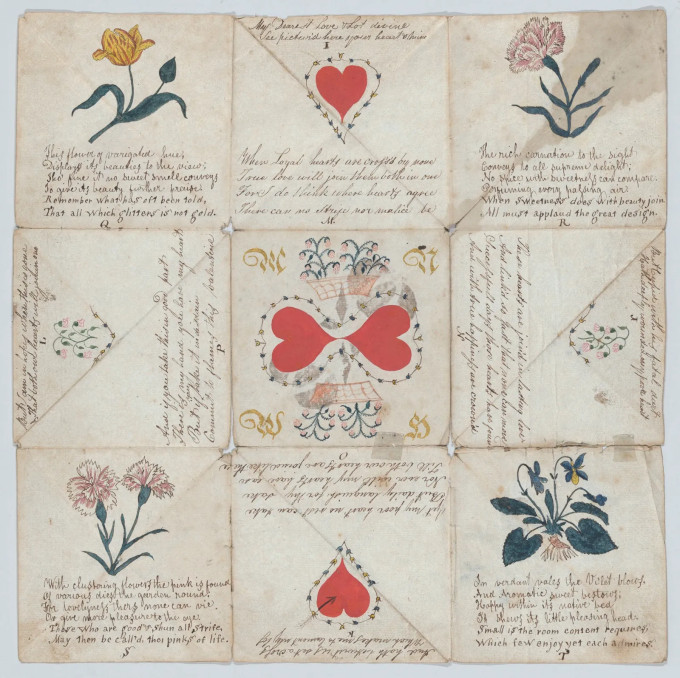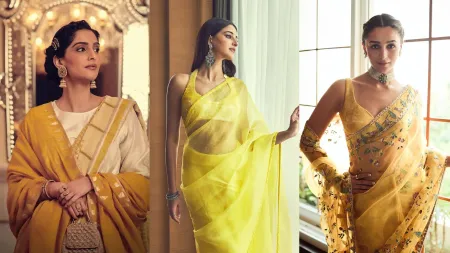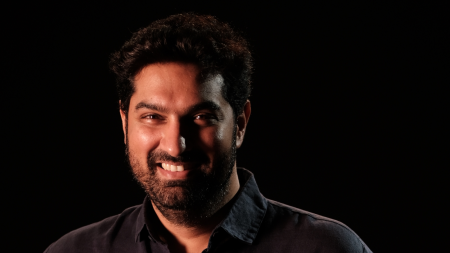Valentine’s Day is not just about romantic love for Gen Z anymore
“When loyal hearts are crossed by none, true love will join them both in one;
For I do think where hearts agree, there can no strife nor malice be.”
February 14, 1826. The day these lines were written by a gentleman, along the edges of an ornately decorated Valentine Puzzle Purse to be gifted to their object of affection.

Forget boxes of chocolates and predictable flower bouquets. Imagine intricately crafted puzzle purses, their velvet pockets holding hidden messages and sentimental tokens, exchanged between sweethearts and admirers. Each unlocked compartment unlocked a layer of mystery, mirroring the complex emotions swirling around this day of love.
Fast forward to the present, and while digital hearts fly across social media and pre-ordered roses arrive on cue, does modern love retain the romantic charm of yesteryear’s tokens? Have we traded handcrafted secrets for mass-produced sentiment? What is Valentine’s Day and the expression of love in this day and age?
 An anonymous Victorian puzzle purse from 1826. (Source: The Met Museum)
An anonymous Victorian puzzle purse from 1826. (Source: The Met Museum)
For 26-year-old Mamta Marasini, Valentine’s Day is all about going the extra mile for your partner. “My then-boyfriend tried to cook for me. The wine and conversation flowed so well that we ended up putting too much salt in our cacio e pepe and had to order in,” Marasini says laughingly. Though it could be any other day too, this Valentine’s was particularly a “core memory” for Marasini.
Over the years, the dynamics of relationships have changed and there is a shift in the way people perceive love. Gen Z is changing the gender norms when it comes to relationships, said Mugdha Mhatre, psychologist, Mpower-Mumbai, adding that the onus of getting gifts and planning dinners does not lie on men alone, it is something that women actively take part in.
“This gendered version is anyway diminishing as people have same-sex partners. Gen Z is all about accepting love in all forms, while the concept of Galentine’s is millennial, we see Gen Z owning it more, celebrating it with their platonic friends, colleagues, cousins, siblings, and parents,” Mhatre explained.
Tinder saw a 10 per cent increase in overall matches compared to an average day and a 17 per cent increase amongst 18-25-year-old users globally, around Valentine’s Day in 2023, and according to Aahana Dhar, director, communications, Tinder India, this is because young daters today are seeking adventure in new experiences and connections and self-discovery has never been more important.
“These singles are less concerned with where their relationship is heading, and more interested in creating memorable experiences, also known as N.A.T.O dating (a.k.a. Not Attached To Outcomes),” she explained in an interaction with indianexpress.com.
But some Gen Zers also find Valentine’s Day “too over-rated” like 23-year-old Mehak Pathan, who believes “love doesn’t need to be expressed in a single day; like an obligation.”
As per Bumble’s findings last year, 39 per cent of single Indians felt that Valentine’s Day is overrated and did not feel the need to celebrate it irrespective of whether they are dating or not.
For those like Shivam Baruah, a 26-year-old advertising professional, the “aesthetic of consumption” around Valentine’s doesn’t sit well with him. “This one-day callout to love doesn’t really cut it for me. All this identity formation based on the capitalist side of things, which is legitimised with a day for love,” Baruah added.
Rosary Tuolor, 24, challenges this assumption. “Isn’t everything commercial these days? Capitalism is at its peak and omnipresent, can’t really escape it so why not just enjoy the ride while it lasts?”
According to anonymous poll-based app Hunch, a majority of 63 per cent Gen Z weren’t interested in spending money on Valentine’s Day, out of more than 8,000 of them polled (and counting).
 For those like Shivam Baruah, a 26-year-old advertising professional, the “aesthetic of consumption” around Valentine’s doesn’t sit well with him. (Source: File)
For those like Shivam Baruah, a 26-year-old advertising professional, the “aesthetic of consumption” around Valentine’s doesn’t sit well with him. (Source: File)
Gen Z is torn between celebrating Valentine’s Day or cringing upon it. While they are excited by the idea of it, they are aware of the capitalistic world and try not to get carried away, according to psychologist Mhatre.
This is not to say that Gen Z is erasing tradition entirely. They are simply adapting it to fit their values and experiences. Their approach prioritises authenticity, inclusivity, and meaningful connections, reflecting a more nuanced understanding of the diverse ways love can be expressed and celebrated.
They might not agree on whether they want to gift something to their significant others for Valentine’s but “refreshingly, Gen Z are not hesitant to challenge the status quo and date on their own terms and timelines,” Samarpita Samaddar, India communications director, Bumble, tells us.
Outdated traditions and forced celebrations have been thrown out the window, focusing more on genuine connections, said Shrey Sehgal, founder and CEO of gifting site FlowerAura. “The ultimate expression of affection and appreciation has shifted to thoughtful gifting and gestures, such as handmade gifts, unplanned dates and cherishing the time spent together,” Sehgal added.
Varun Moolchandani, executive Director of Archies, echoed this sentiment. “Gen Z tends to embrace unique expressions of love, leaning towards personalised experiences over traditional gestures. We have noticed a rise in demand for customisable gifts and experiences that reflect individuality and authenticity,” Moolchandani said.
Kaushiki Negi wants to be that free too but, Valentine’s seems “more delulu when everything is going insane in the world, so I am just like mujhse pehli si mohabbat mere mehboob na maang. (Don’t ask me to love you like I loved you before).
But then there are still those Gen Zs for whom Valentine’s is renewing hope in a better world. Sahil Mukherjee, 24-year-old engineer, feels happy that Valentine’s Day exists. “Happy for people who find love in this dystopian world. Makes me think maybe the world isn’t dystopian and I’m just cynical, maybe,” Mukherjee said.
For Ahilya Jain, a 26-year-old who works in media and is otherwise surrounded by things that are wrong with the world, celebrating Valentine’s (or Galentine’s) with her loved ones gives her a chance to escape reality, hit pause and just revel in the celebration of love.
 Valentine’s Day for Gen Z is no longer only about roses but rather experiences that blossom. (Source: Freepik)
Valentine’s Day for Gen Z is no longer only about roses but rather experiences that blossom. (Source: Freepik)
While Valentine’s Day still encompasses romantic love, Gen Z sees it as a broader celebration of platonic, familial, and self-love, said Karima Ben Abdelmalek, CEO and president of dating site Happn. “There are multiple factors contributing to the shift of Gen Z’s perception towards Valentine’s Day, the significant one being a cultural shift towards individualism and self-expression,” Abdelmalek said.
FlowerAura CEO Sehgal concurred with her, adding that, “as a generation that values experiences, making memories has become more important than collecting stuff that will eventually turn to dust. Galentine’s Day get-togethers and self-indulgence getaways have evolved into ways for single people to celebrate their self-love. Valentine’s Day is no longer for couples to celebrate and appreciate one another; families are using it as a chance to spend quality time together, friends are commemorating their friendship and single people are treating themselves to things that make them happy”.
Valentine’s Day for Gen Z is no longer only about roses but rather experiences that blossom. Celebrations that are more meaningful and less manufactured emphasise shared experiences rather than only material mementoes. The objective is to create memories rather than just cross things off a list.
So, whether it’s celebrating self-love, platonic friendships, or romantic relationships, Gen Z is proving that Valentine’s Day can be anything you want it to be, as long as it’s true to you. Love is a language with many dialects. Gen Z is simply speaking theirs.
Disclaimer: The copyright of this article belongs to the original author. Reposting this article is solely for the purpose of information dissemination and does not constitute any investment advice. If there is any infringement, please contact us immediately. We will make corrections or deletions as necessary. Thank you.





